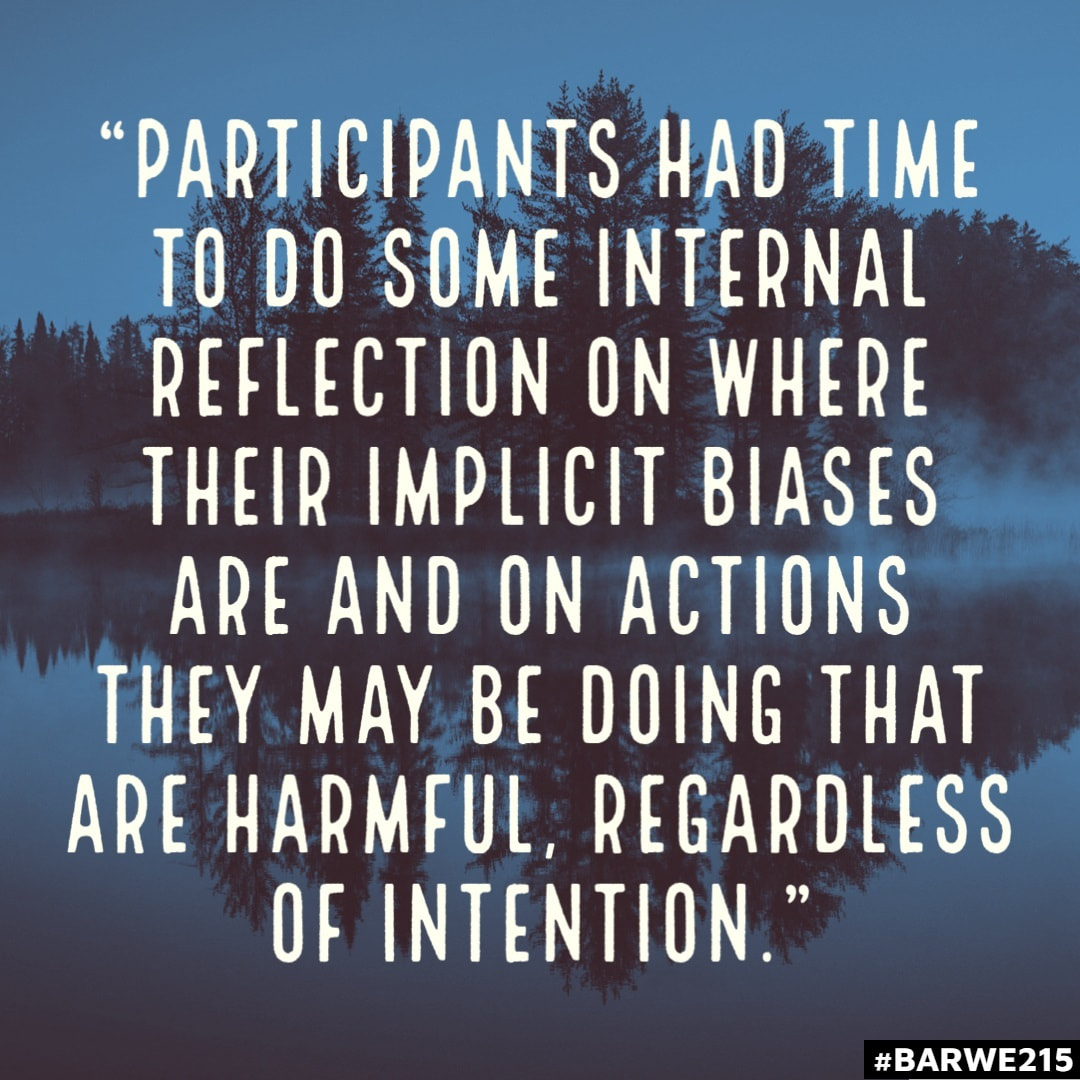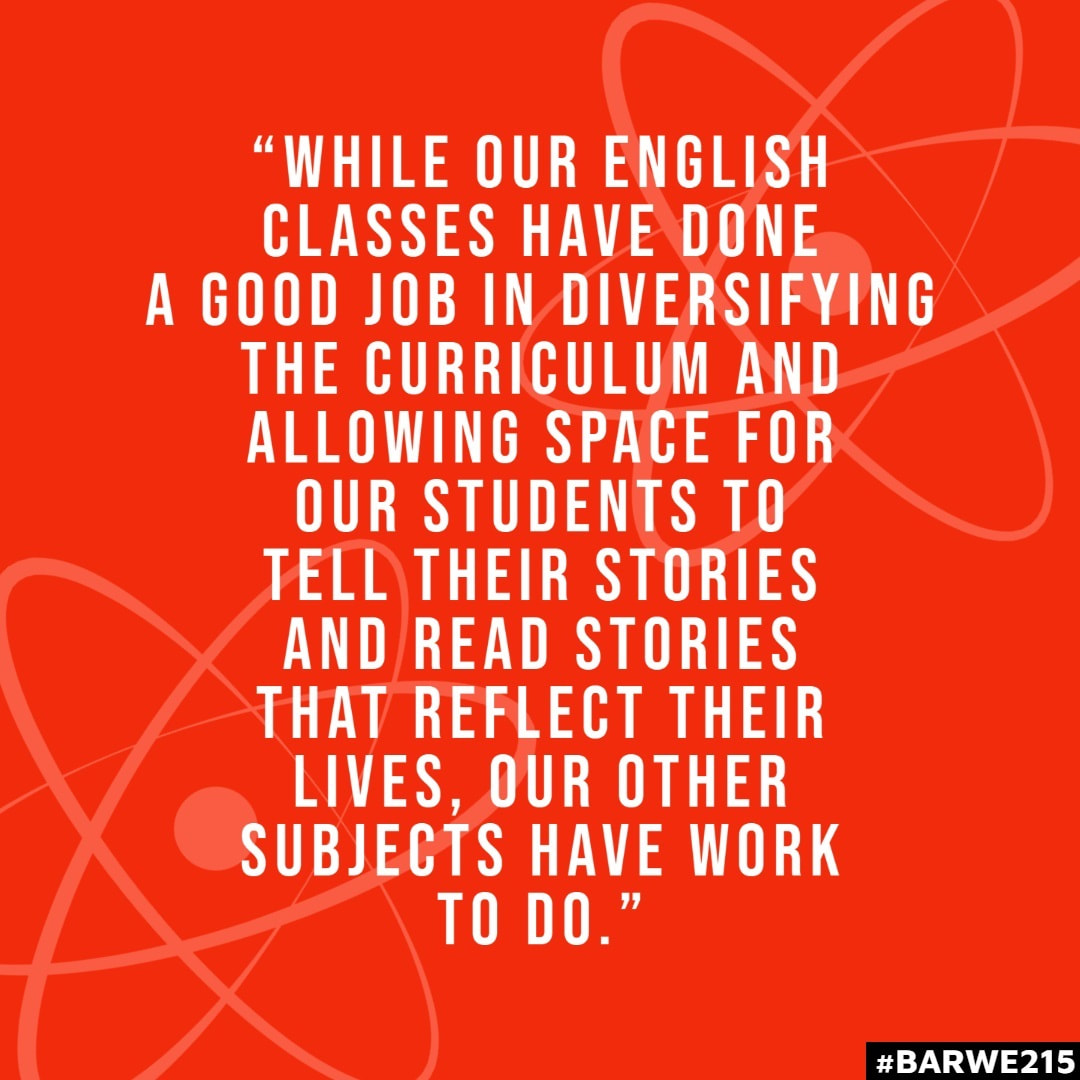- About Us
-
Inquiry Series
-
Current Year 23 - 24 School Year
>
- June: End of Year Reflection
- May: How do we support students of color navigating admissions processes?
- April: How do we support students and teachers when they face backlash for speaking out for racial justice?
- March: How can we find inspiration in white antiracists currently doing this work?
- February: How can we learn from white anti-racists of the past?
- January: How can you build solidarity across differences?
- December: How do we give ourselves space to process when we feel stuck/overwhelmed/enraged?
- November: How do we fight back against attacks on racial and gender justice education?
- October: Why is it important to understand both the history of CRT and what it has come to mean?
- September: How do we keep the focus on race as we engage in antiracist reflective practice?
- Previous Inquiry Series
- Inquiry Resources >
-
Current Year 23 - 24 School Year
>
-
Summer Events
- Writings
If this is your first year doing this series, we recommend starting with an orientation meeting using the August 2018 guide before starting our current series with September.
Don't forget to give us feedback.
Overview:
In our second month of reflecting on our curriculum, we are using what we learned in December to interrogate the hidden messages of our curricular choices. We suggest using this tool to do an audit of your curriculum. We think the tool pairs well with the work we did around recognizing white supremacy culture and centering Black joy in our first few sessions of Series 3. As we reflect on our curriculum by focusing on representation, power, and equity, we want to keep in mind the dangers of committing curricular violence.
This month, we encourage participants to come to the monthly meeting with one unit already in mind. To start the meeting, everyone should use the Critical Analysis of A Curricular Unit (audit tool) to look closely at their unit, noting the current state and changes needed. Then we encourage participants to share their analysis with another participant, asking questions to delve deeper into the analysis. We realize this work cannot be completed in one meeting, so it is important to name next steps in this process that everyone can take after the meeting ends. As you move toward action motivated by the audit, you can use this resource list. (If the audit tool does not suit the needs of your particular educational role, we suggest holding a discussion based on one of the resources that was used to create the tool. Links to these resources are located at the top of the document.) We also encourage you to join the Slack and share how you are using this month to transform your inquiry into action.
Facilitation Reference Guide:
Feedback Form:
As we grow in year three, we hope that one person in your group can take a few minutes to fill out our feedback form to let us know how it went.
Below are takeaways from previous meetings:
Don't forget to give us feedback.
Overview:
In our second month of reflecting on our curriculum, we are using what we learned in December to interrogate the hidden messages of our curricular choices. We suggest using this tool to do an audit of your curriculum. We think the tool pairs well with the work we did around recognizing white supremacy culture and centering Black joy in our first few sessions of Series 3. As we reflect on our curriculum by focusing on representation, power, and equity, we want to keep in mind the dangers of committing curricular violence.
This month, we encourage participants to come to the monthly meeting with one unit already in mind. To start the meeting, everyone should use the Critical Analysis of A Curricular Unit (audit tool) to look closely at their unit, noting the current state and changes needed. Then we encourage participants to share their analysis with another participant, asking questions to delve deeper into the analysis. We realize this work cannot be completed in one meeting, so it is important to name next steps in this process that everyone can take after the meeting ends. As you move toward action motivated by the audit, you can use this resource list. (If the audit tool does not suit the needs of your particular educational role, we suggest holding a discussion based on one of the resources that was used to create the tool. Links to these resources are located at the top of the document.) We also encourage you to join the Slack and share how you are using this month to transform your inquiry into action.
Facilitation Reference Guide:
- This month’s work is based on the topics from December. - Take time to engage in that discussion before you do this month’s meeting and audit.
- Set a day and time for your group to meet - Make sure to send reminders. If you’re meeting in person, snacks are always a good idea!
- Use the Critical Analysis of A Curricular Unit (audit) tool to reflect on and discuss your curriculum, or use one of the resources used to create this tool (linked at the top of the tool).
- Prepare yourself to facilitate by reading through our Norms and Discussion Protocol.
- Pass the Hat and collect donations for The Philly Bail Fund this month.
- Complete the Feedback Form.
- Prepare yourself for February by setting a date and time, inviting colleagues, and looking out for our next Discussion Guide on February 1st.
Feedback Form:
As we grow in year three, we hope that one person in your group can take a few minutes to fill out our feedback form to let us know how it went.
Below are takeaways from previous meetings:
Thank you all for your feedback so far, please keep it coming!
Pass The Hat:
In addition to being accountable to our colleagues and students of color, we believe it is important to be financially accountable to people of color who are doing this work on a daily basis. Each month, we will recommend an organization led by people of color, in education and beyond, doing the work of pushing for justice.
At the end of each monthly discussion, pass a hat (or a box) and collect donations for the designated organization. You can then have one group member go online and donate in the name of your school. If you want, you can add “Building Anti-Racist White Educators” after your school name.
This month, we encourage you to donate to Philly Bail Fund. From their website: The Philadelphia Bail Fund is working urgently to free as many of our neighbors as possible during this pandemic. There is an urgent need to post bail as COVID-19 threatens people in jail, where crowded living quarters and inadequate health care make conditions ripe for a viral outbreak. Since January 2020, we helped bring over 300 people home from Philly’s jails. But we continue to receive a flood of referrals, as our neighbors continue to be held in cages.
Pass The Hat:
In addition to being accountable to our colleagues and students of color, we believe it is important to be financially accountable to people of color who are doing this work on a daily basis. Each month, we will recommend an organization led by people of color, in education and beyond, doing the work of pushing for justice.
At the end of each monthly discussion, pass a hat (or a box) and collect donations for the designated organization. You can then have one group member go online and donate in the name of your school. If you want, you can add “Building Anti-Racist White Educators” after your school name.
This month, we encourage you to donate to Philly Bail Fund. From their website: The Philadelphia Bail Fund is working urgently to free as many of our neighbors as possible during this pandemic. There is an urgent need to post bail as COVID-19 threatens people in jail, where crowded living quarters and inadequate health care make conditions ripe for a viral outbreak. Since January 2020, we helped bring over 300 people home from Philly’s jails. But we continue to receive a flood of referrals, as our neighbors continue to be held in cages.

